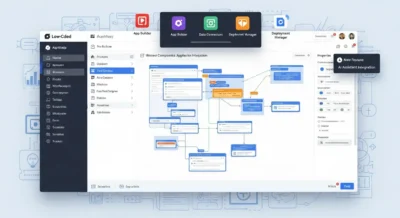In the contemporary business landscape, Human Resources (HR) has evolved beyond its traditional administrative functions to become a strategic partner in achieving organizational goals. Strategic HR Management is a dynamic approach that aligns human capital with the organization’s strategic objectives. By integrating HR practices with the overall business strategy, Strategic HR Management optimizes workforce productivity, enhances employee engagement, and fosters a culture of continuous improvement. This article explores the significance of Strategic HR Management, its key components, and its transformative impact on organizational success.
The Significance of Strategic HR Management
Strategic HR Management recognizes that employees are an organization’s most valuable asset, and aligning HR practices with business objectives is essential for sustainable success. The following points emphasize the significance of Strategic HR Management.
Aligning HR with Organizational Goals
One of the primary roles of Strategic HR Management is to ensure that HR initiatives are directly linked to the organization’s strategic vision and mission. HR practices, such as recruitment, training, and performance management, are purposefully designed to support achieving business objectives. This alignment creates a cohesive and focused approach to human capital management, where every HR effort contributes to the organization’s overarching goals.
Driving Employee Engagement
A strategic approach to HR empowers employees by providing growth opportunities, recognition, and support. Engaged employees are more committed and productive and contribute positively to the organization’s success. Strategic HR Management fosters an inclusive and supportive work environment, nurturing a sense of ownership and dedication among employees. It involves HR initiatives that enhance job satisfaction, work-life balance, and opportunities for skill development, thus fostering a motivated and engaged workforce.
Talent Management and Retention
Strategic HR Management places significant emphasis on attracting and retaining top talent. To achieve this, HR professionals work closely with leadership to understand the organization’s critical skills and future needs. Effective talent acquisition strategies are formulated to attract individuals with important skills and knowledge that align with the organization’s culture and values. Additionally, tailored employee development programs ensure continuous growth and career progression, enhancing retention rates and reducing turnover.
Change Management and Adaptability
Organizations must be agile and adaptable in today’s fast-paced and ever-changing business landscape. HR plays a pivotal role in managing organizational change and building a culture of adaptability. Strategic HR Management supports employees during transitions, providing the necessary resources, training, and communication to facilitate smoother change processes. This ability to adapt to evolving market conditions, technological advancements, and shifting customer demands is critical for long-term success.
Data-Driven Decision-Making
A strategic approach to HR harnesses the power of data analytics to make informed decisions about workforce planning, performance management, and employee development. Data-driven insights enable HR professionals to identify trends, address challenges, and seize opportunities effectively. HR analytics helps predict workforce needs, identify skill gaps, and measure HR initiatives’ impact, ultimately driving more evidence-based and impactful decision-making.
Critical Components of Strategic HR Management
Several critical components must be considered for effective human resources management. One of the most essential factors is strategic planning, which involves setting clear goals and objectives that align with the organization’s overall mission and vision.
Workforce Planning
Strategic HR Management involves aligning HR planning with the organization’s long-term goals. HR professionals comprehensively analyze the organization’s present and future workforce needs to ensure the right people are in the correct positions to drive success. Workforce planning anticipates potential skill shortages, identifies critical roles, and prepares succession plans to ensure a strong and competent talent pipeline.
Talent Acquisition and Recruitment
Strategic HR Management emphasizes the importance of recruiting individuals with the necessary skills and qualifications that align with the organization’s culture and values. HR professionals craft innovative recruitment strategies, utilizing various channels and employer branding efforts to attract top talent. The goal is to build a diverse and capable workforce that contributes positively to the organization’s growth.
Employee Development and Training
A strategic approach to HR designs and implements comprehensive training and development programs that align with the organization’s strategic goals. These programs prioritize skill enhancement, knowledge development, and career progression. Strategic HR Management identifies skill gaps and opportunities for growth, ensuring employees remain engaged and equipped with the relevant expertise to meet evolving challenges.
Performance Management
Strategic HR establishes performance management systems that align individual goals with organizational objectives. Regular performance evaluations provide employees with constructive feedback, identify areas for improvement, and recognize outstanding contributions. This fosters a culture of accountability and continuous improvement.
Employee Engagement and Recognition
Strategic HR Management actively promotes employee engagement initiatives to foster a positive work environment. Employee engagement surveys, feedback mechanisms, and recognition programs acknowledge and celebrate outstanding achievements, reinforcing a sense of belonging and appreciation.
Succession Planning
Strategic HR Management identifies high-potential employees and develops plans for their growth within the organization. By nurturing future leaders from within, the organization ensures a smooth transition during leadership changes and builds a strong leadership pipeline to sustain long-term success.
Impact of Strategic HR Management
Strategic HR management is critical to the success of any organization. When HR managers effectively plan and align their goals with the company’s overall mission and vision, they can drive growth and success by acquiring and retaining top talent, managing performance, and engaging employees.
Aligned Workforce
Strategic HR Management aligns employees’ efforts with the organization’s strategic direction, improving productivity, efficiency, and goal attainment. Employees understand how their roles contribute to the organization’s success, fostering a sense of purpose and alignment.
Enhanced Employee Satisfaction
Employees feel valued and motivated when their individual goals align with organizational objectives, leading to higher job satisfaction and reduced turnover. Satisfied employees are likelier to stay committed to the organization and go the extra mile in their roles.
Reduced Turnover
By investing in employee development and engagement, Strategic HR Management reduces employee turnover, retains top talent, and reduces recruitment costs. Having experienced and knowledgeable employees contributes to organizational stability and expertise retention.
Adaptability and Innovation
A strategic HR approach nurtures a culture of adaptability and innovation, enabling the organization to thrive in a changing business landscape. Engaged and agile employees are more willing to embrace change and contribute ideas to drive innovation.
Improved Employer Brand
A robust strategic HR focus enhances the organization’s reputation as an employer of choice, attracting top talent and enhancing its competitive position. A positive employer brand can be a significant advantage in attracting skilled individuals to the organization.
Conclusion
Strategic HR Management is a fundamental driver of organizational success. By aligning HR practices with strategic goals, organizations can optimize their human capital, enhance employee engagement, and build a culture of continuous improvement. Strategic HR Management empowers employees to contribute effectively to the organization’s vision while supporting long-term growth and sustainability.
As the business landscape continues to evolve, the significance of Strategic HR Management will only grow, underscoring its indispensable role in achieving excellence and maintaining a competitive edge in the global marketplace. By strategically managing their human capital, organizations can cultivate a thriving workforce, achieve their strategic objectives, and secure a prosperous future. Strategic HR Management is an HR function that is imperative to drive overall organizational success.













